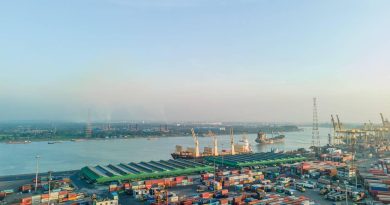After two sluggish years, multinational companies operating in Bangladesh are seeing signs of recovery as sales rebound across sectors — from paints and cement to tobacco and household goods. But despite higher revenues, profits remain flat due to rising costs and thin margins.
According to financial disclosures from 12 multinational companies, combined sales grew 8 percent year-on-year in the July–September quarter of FY2025–26. In comparison, sales grew just 1 percent in 2024 and 3 percent in 2023.
The companies include Grameenphone, British American Tobacco, Robi, LafargeHolcim, Berger Paints, Marico, Singer, Heidelberg Cement, RAK Ceramics, Reckitt Benckiser, Unilever Consumer Care, and Linde Bangladesh.
Despite the rebound in sales, combined profitability slipped to 8.61 percent in Q1 of FY26 from 9.28 percent a year earlier, mainly due to higher input costs and increased financing expenses.
Still, total profits inched up slightly to Tk 1,637 crore, compared with Tk 1,633 crore in the same quarter last year. (Profits of Linde Bangladesh were excluded from the comparison due to a one-off gain in 2024.)
Demand Returns, but Costs Bite
Company executives said consumer spending is gradually picking up after months of political unrest, supply disruptions, and high inflation that hit demand last year.
“High sales growth this year partly reflects the low base from the previous period,” said Iqbal Chowdhury, CEO of LafargeHolcim Bangladesh. “Inflation and volume growth also contributed, though the picture varies by sector.”
He explained that cement sales volumes rose even as prices fell, with producers offering discounts and promotions to boost demand. “Variable costs, including energy and finance charges, are still rising — companies couldn’t fully pass these costs on to consumers,” he said.
Analysts See Early Signs of Recovery
Market analysts agree the higher sales reflect a tentative rebound in consumer demand. Shahidul Islam, managing director of VIPB Asset Management, said multinationals are “slowly returning to growth” after a difficult 2023–24 marked by high inflation, a dollar shortage, and political turmoil.
“The sales growth is a very clear indication of economic rebound,” he said, noting that improving foreign exchange reserves and easing inflation could sustain the recovery if political stability holds.
Inflation in Bangladesh stood at 8.36 percent in September, remaining persistently high since early 2022, according to official data.
Mixed Performance Across Sectors
Among individual firms, RAK Ceramics led the pack with 54 percent sales growth, followed by Unilever Consumer Care (25%), Marico Bangladesh (23%), Singer (15%), BAT (11%), and Reckitt Benckiser (10%).
Linde, Berger, LafargeHolcim, Grameenphone, and Robi posted moderate growth between 1 and 7 percent.
Yet analysts cautioned that part of the apparent recovery stems from a “low base effect”. Ali Imam, CEO of EDGE Asset Management, said around five percentage points of the 8 percent growth came from price adjustments rather than volume increases.
“If underlying demand were stronger, sales growth could have been higher,” he said, adding that rising interest rates, raw material costs, and overheads continue to constrain profit margins.






